Cooking a bowl of spaghetti may be the most straightforward dish in every home chef's repertoire. All you have to do is boil a pot of salty water, add your spaghetti, and stir till it's done.
But here's the rub: when do you know your spaghetti is ready? If you're unsure how long you should cook your spaghetti, then you've got to check out the research we've done on this topic.
In most cases, it's best to cook dried spaghetti for between 9 to 12 minutes. If you have a skinny spaghetti variety like angel hair, you should aim for slightly below this time range. By contrast, thicker spaghetti such as spaghettoni usually takes longer to reach al dente. Also, if you're using fresh spaghetti, you only need to cook it in boiling water for about one minute.
Since there are so many spaghetti varieties to choose from, it can be tricky to decide when to pull out your pasta. If you need help perfecting your pasta timing, then be sure to read through the pro tips below.
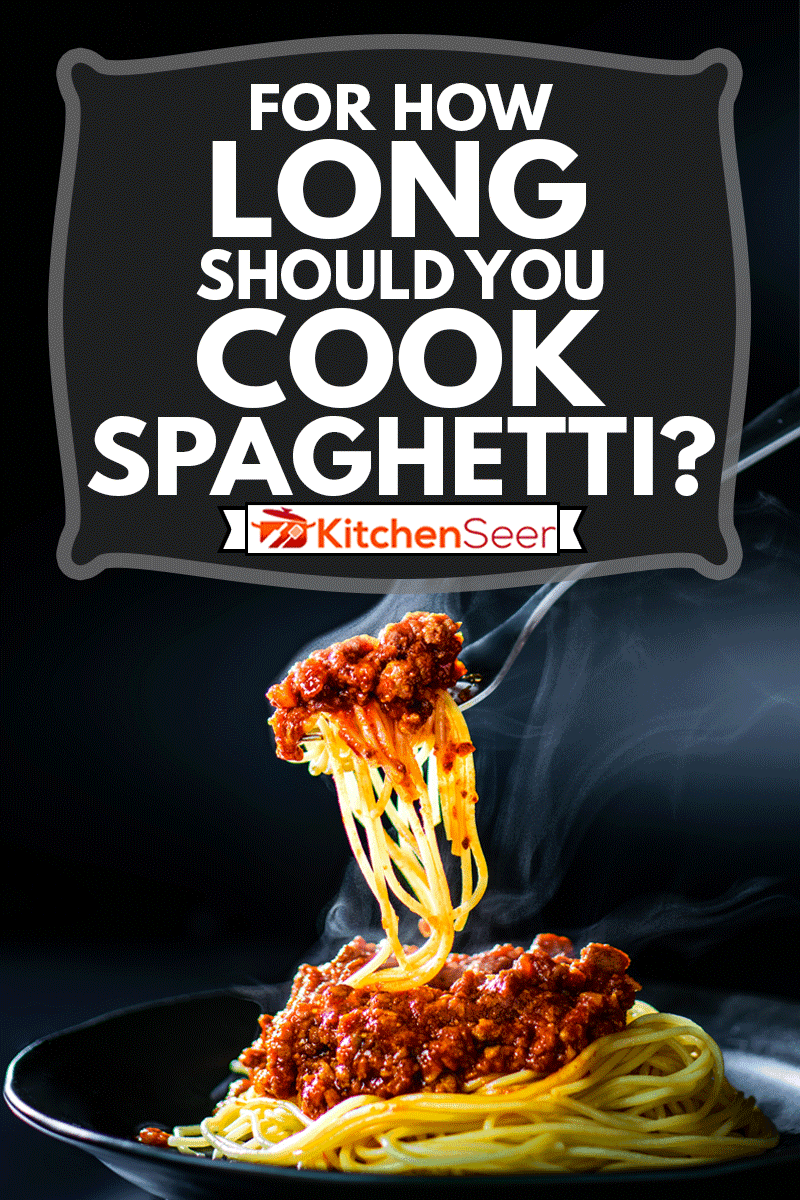
how long for al dente spaghetti? Ideal cooking times explored
The term "Al Dente" comes from Italian and is translated into "to the tooth". When used to describe pasta, including spaghetti, it means "cooked to be firm when bitten". In other words, have "a bite" to it, and not be too soft.
So, the question is: how long should you cook spaghetti to get it to be "al dente" - fully cooked, yet not too soft.
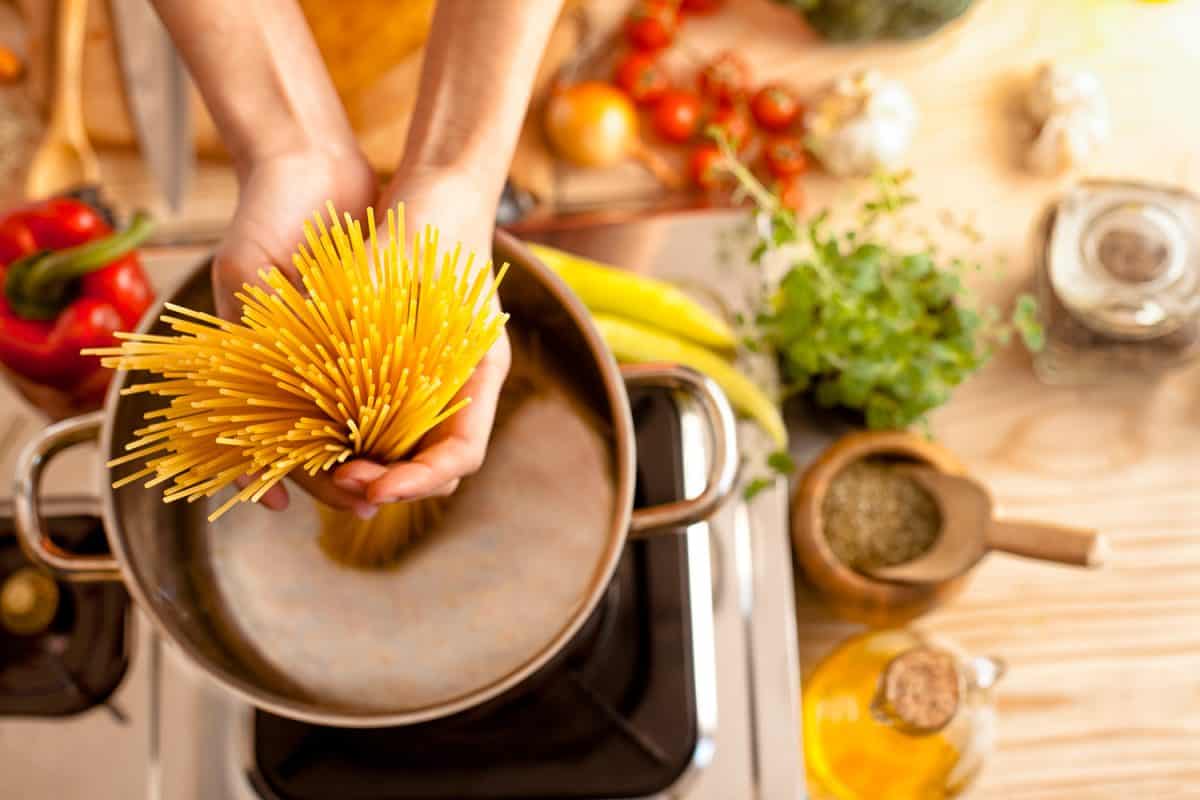
Generally, you will find a suggested cooking duration on the side of your dried spaghetti box. If so, it's best to pull a few pieces of spaghetti out of the boiling water one to two minutes before the recommended time. Give this spaghetti a taste test to see if they meet your expectations. If not, keep going till you reach the manufacturer's suggested time.
If there's no recommended time on your spaghetti box, shoot for between 9 to 12 minutes. The thicker your spaghetti is, the more time it will need to reach al dente. Be sure to keep a kitchen timer nearby so you don't lose track of time.
Find out more on this Amazon link.
Please be extra careful with super-thin pasta like angel hair or Capelli d'angelo. Indeed, if you're using angel hair pasta, it's best to give it a check after four minutes. You can see how a pro cooks delectable angel hair pasta in this Gordon Ramsay tutorial:
Does Fresh Spaghetti Need Less Time To Cook?
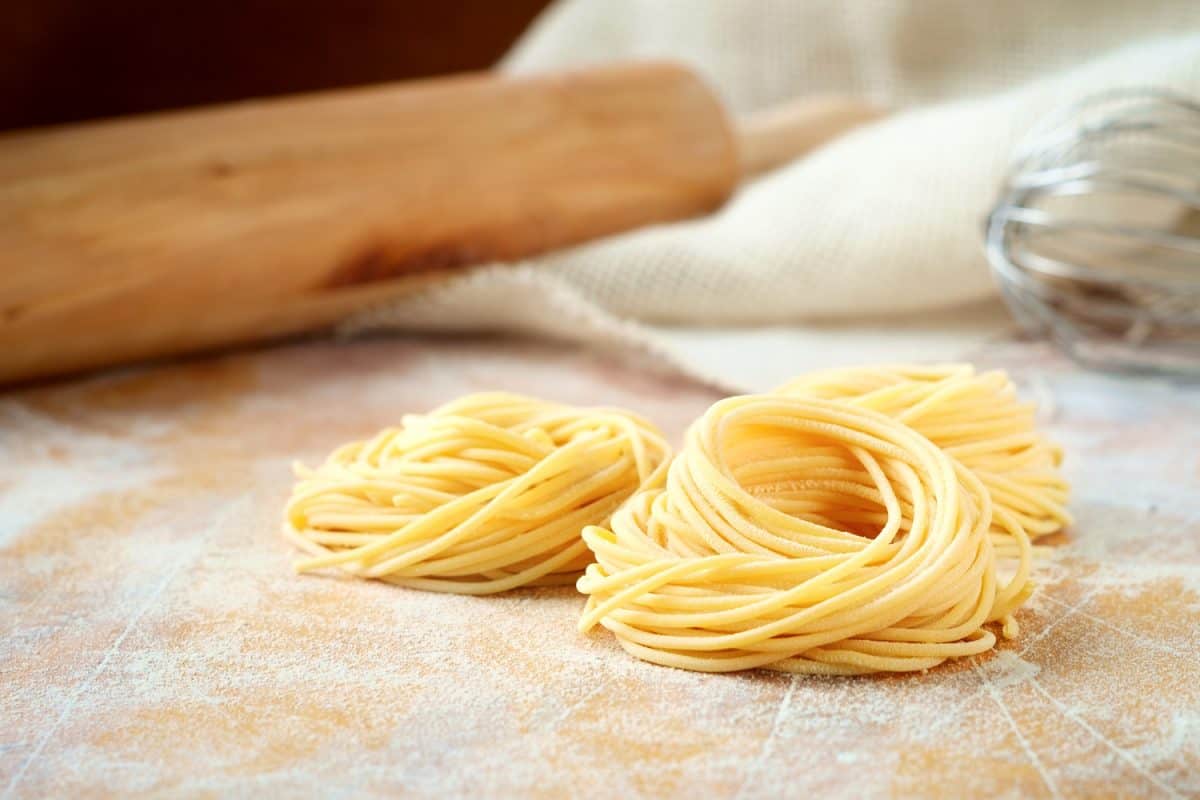
Since fresh pasta is softer than dried pasta, it takes less time to cook through. How much less, you ask? Well, in the case of spaghetti, you should do fine with just one to two minutes in boiling water.
By the way, if you're interested in making spaghetti at home, you've got to check out our previous post on the "Top Five Pasta Machine Brands."
Does Salt Speed Up The Cooking Time For Spaghetti?
Although salt could slightly raise the water temperature, the effects are negligible on pasta. Indeed, researchers now estimate you need about one ounce of salt to bump up water's boiling point by a measly 1° F.
Generally, chefs only recommend adding about one tablespoon of salt per pound of pasta. While you could use any salt variety you have on hand, many pros recommend a coarse variety like Kosher salt for the best flavor.
Find out more on this Amazon link.
How Do You Know When Spaghetti Is Done?
Unlike checking a steak with a meat thermometer, there's no scientific way to check the doneness of spaghetti.
Indeed, the best way to see whether your spaghetti is ready is to have a mini taste test! When your timer goes off, carefully pull out a few strands of spaghetti with a pair of spaghetti tongs. Yes, there are tongs designed explicitly for pasta!
Find out more on this Amazon link.
Once you've got your spaghetti on a plate or a clean cutting board, let it cool off for a bit. Remember, you just took this pasta out of boiling water—please don't burn your tongue!
When your pasta is cool enough, taste it! For perfect al dente pasta, your spaghetti should be slightly firm. However, if you pick up a raw taste, or if your pasta is too hard, it's too early.
If you're interested, you could learn more about spaghetti tongs in our previous post examining the "Major Types of Kitchen Tongs."
What Happens If Spaghetti Is Undercooked?
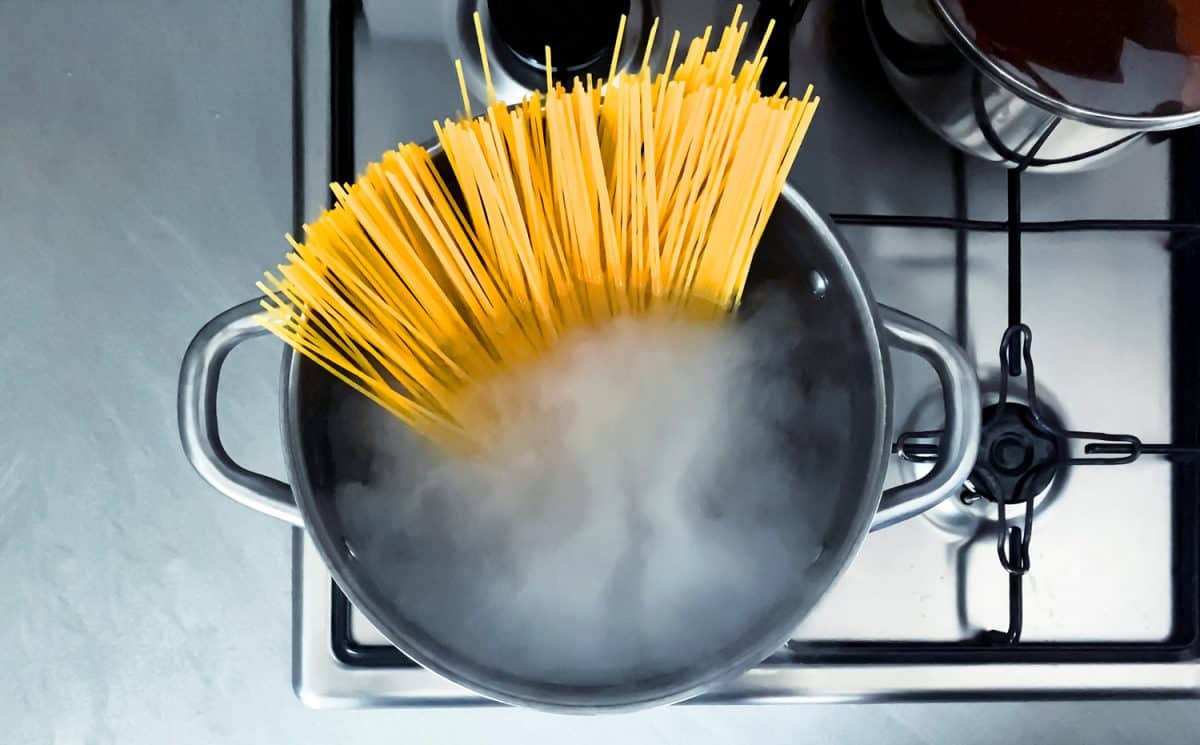
Perfectly cooked al dente pasta should have a subtle bite without feeling excessively hard. Undercooked pasta, on the other hand, will be way too dense to chew comfortably. Also, depending on how undercooked your pasta is, it may have an undesirable raw taste.
While nothing bad will happen if your pasta isn't fully cooked, it's not the most pleasant dining experience. Also, the tougher pasta is, the more difficult it is to digest. So, if you eat a whole bowl of this firm pasta, you may experience a bellyache later on.
How Do You Prevent Chewy Pasta?
Most often, chewiness is a sign your pasta isn't thoroughly cooked. So, if you notice your spaghetti is extra chewy, you should keep your pasta in boiling water for a few extra minutes.
Some chefs also recommend putting a dab of olive oil into your pot of water before cooking pasta. While this tip is optional, it may keep your pasta from clinging together while cooking. Plus, high-quality olive oil will add a delicious flavor to any pasta dish!
Should You Rinse Pasta?
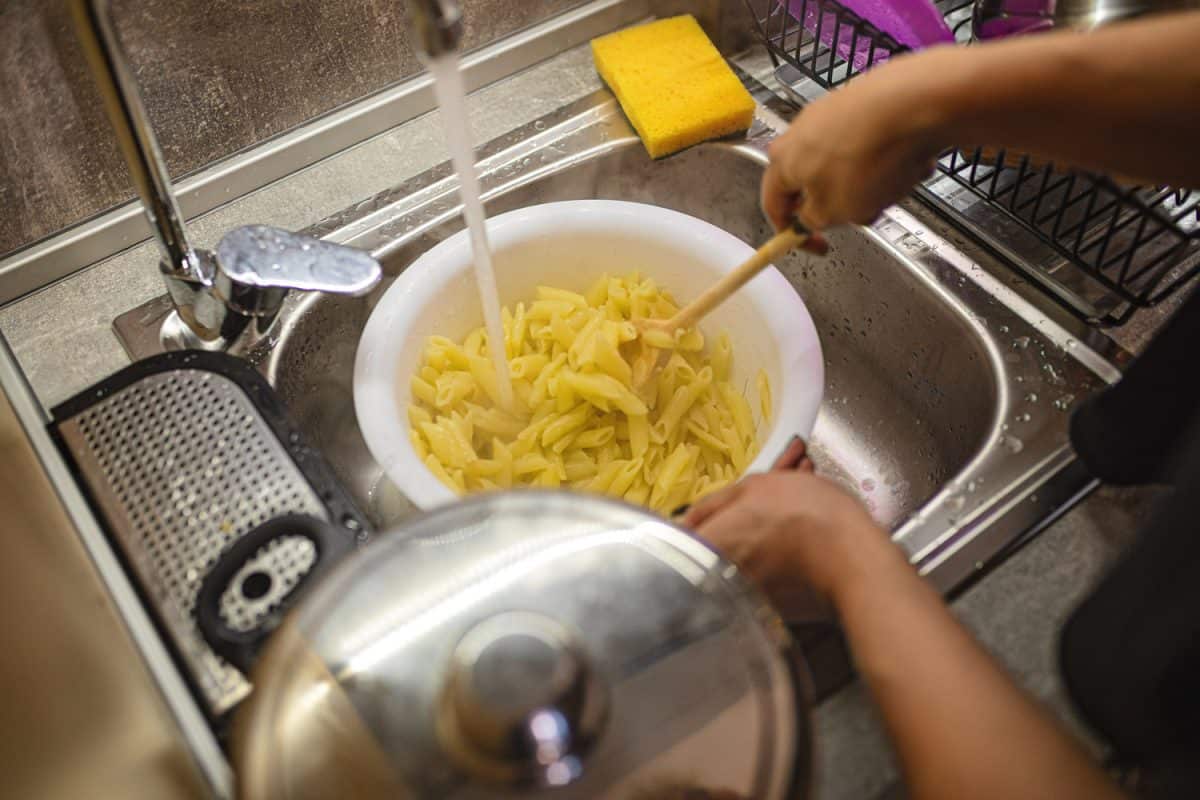
Generally speaking, you shouldn't rinse your pasta before serving. Once you pull your pasta out of your pot of water, it will have a nice starchy layer. This extra starch does a great job clinging to standard sauces like bolognese and alfredo.
However, there are a few occasions where rinsing your pasta could enhance your meal. For instance, chefs always recommend rinsing if you're making a pasta salad. Starchiness is not a desirable quality in this recipe as it will cause your pasta to cling together.
How Do You Properly Strain Pasta?
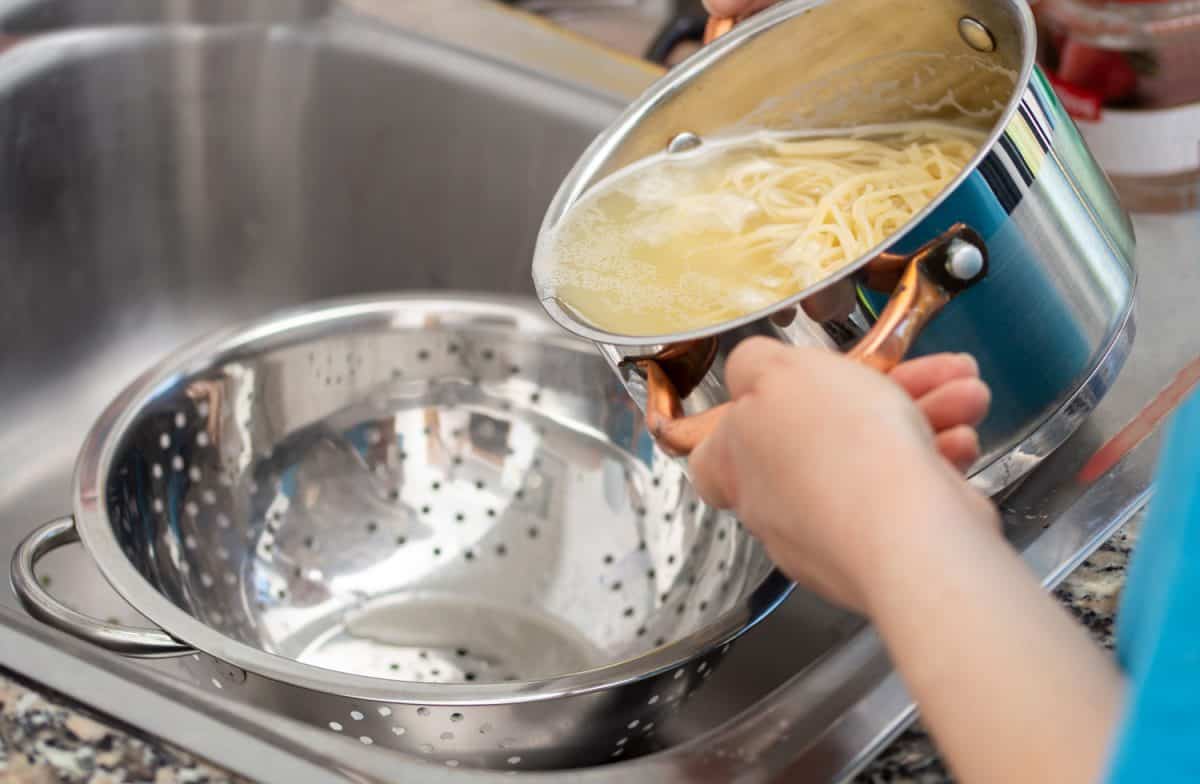
Recently, Twitter was a-buzz with a new technique for straining pasta. Instead of dumping your water into a colander, some Twitter influencers place the colander over their pot and strain it into the sink. Honestly, there's no proper way to strain pasta. It's best to try out both of these methods and find what works best for your colander's shape and your cooking style.
Speaking of colanders, be sure to look through the many convenient models now available online.
Find out more on this Amazon link.
How Long Do You Need To Cook Zoodles?
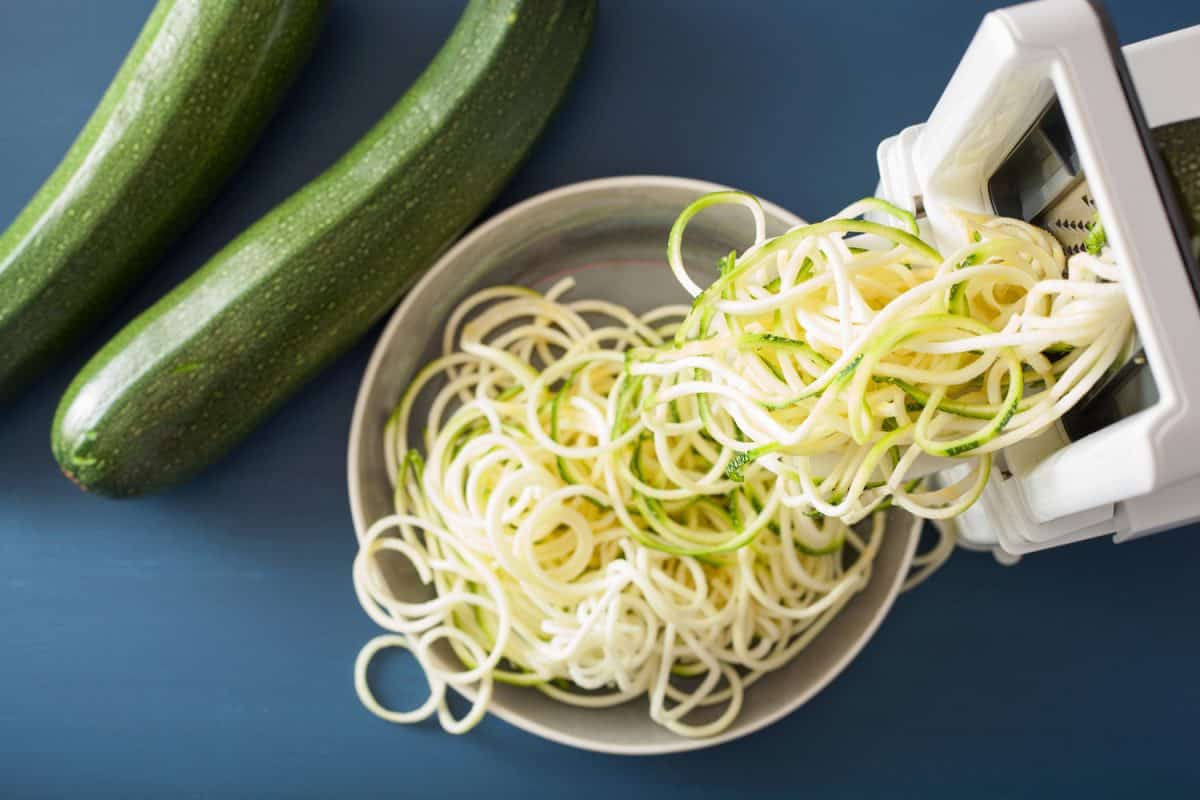
Don't worry, gluten-free folks; we haven't forgotten about you! If you're one of the many Americans who has fallen in love with zucchini noodles or zoodles, you should not follow the spaghetti time guidelines above! Since zoodles are already pretty tender, you only need to cook them in a well-oiled pan for about three minutes. Be sure to stir zoodles with tongs and watch out for burning.
Of course, if you're interested in making zoodles, you should invest in a high-quality spiralizer!
Click this Amazon link for more details.
For Stellar Spaghetti, Be Sure To Set Your Timer!
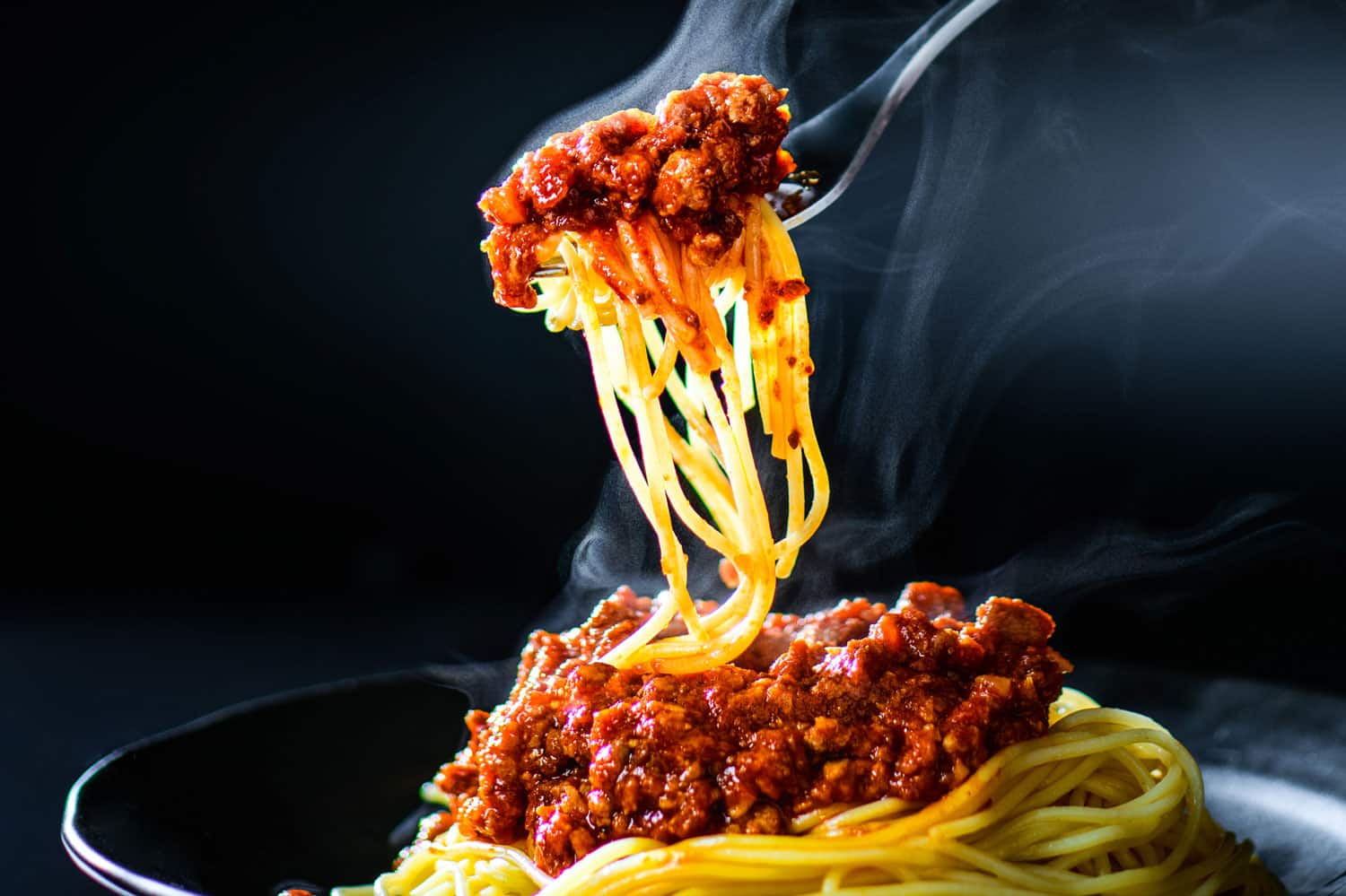
Figuring out the ideal cooking time for spaghetti isn't an exact science. However, as you become more experienced with different pasta varieties, it should become second nature to know when to strain your spaghetti. Indeed, with a bit of practice, we bet you won't even need a timer to tell when your spaghetti is just right! Until then, be sure to record the best cooking times for your favorite spaghetti and set your kitchen timer.






![Man holding tong while mixing her Japanese style ramen dish, Types Of Kitchen Tongs [And What They're Used For]](https://kitchenseer.com/wp-content/uploads/2020/05/Man-holding-tong-while-mixing-her-japanese-style-ramen-dish-250x250.jpg)
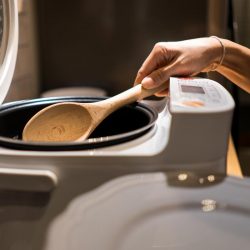
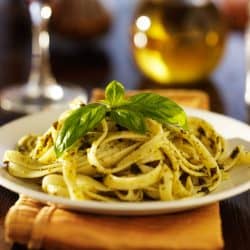
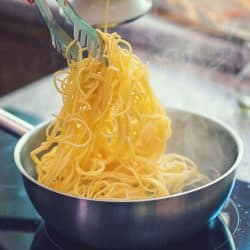
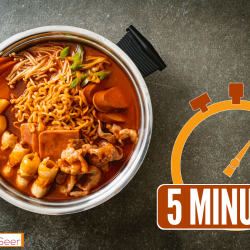
![A man making pasta using a pasta slicer, Is Making Pasta Cheaper Than Buying? [Detailed Costs Revealed]](https://kitchenseer.com/wp-content/uploads/2020/08/A-man-making-pasta-using-a-pasta-slicer-250x250.jpg)